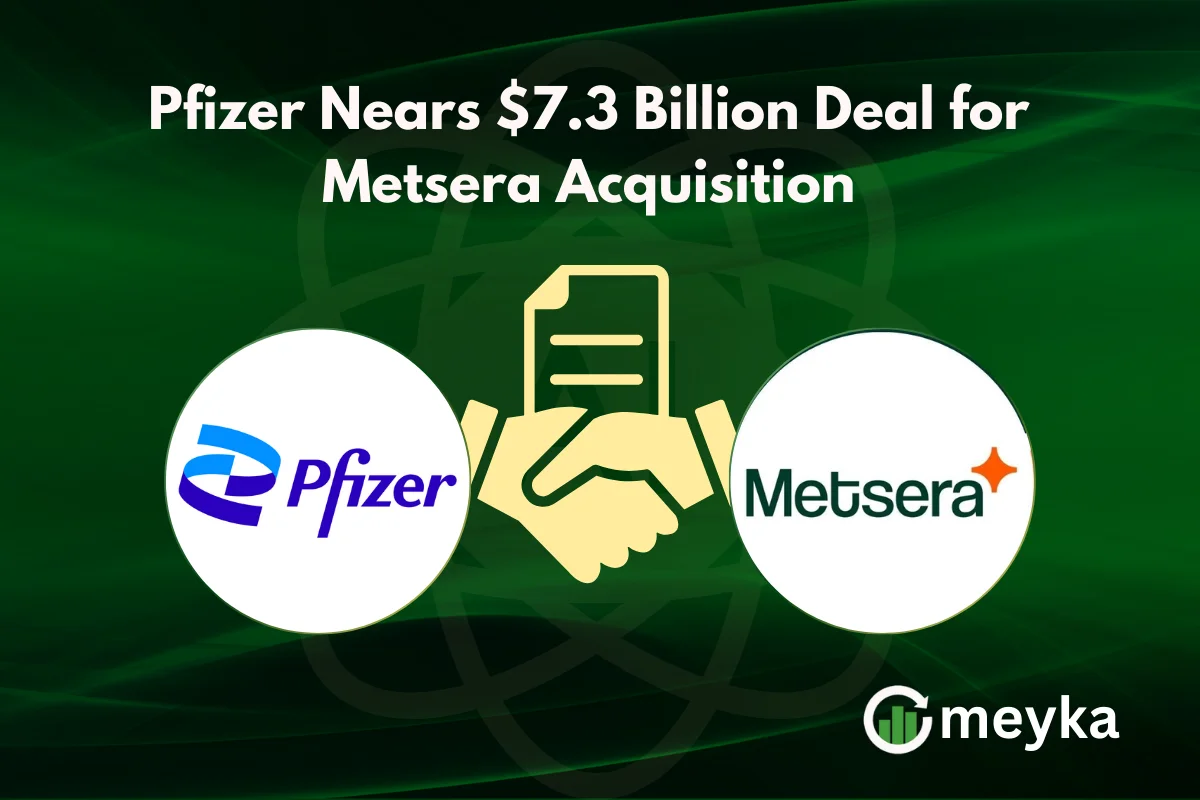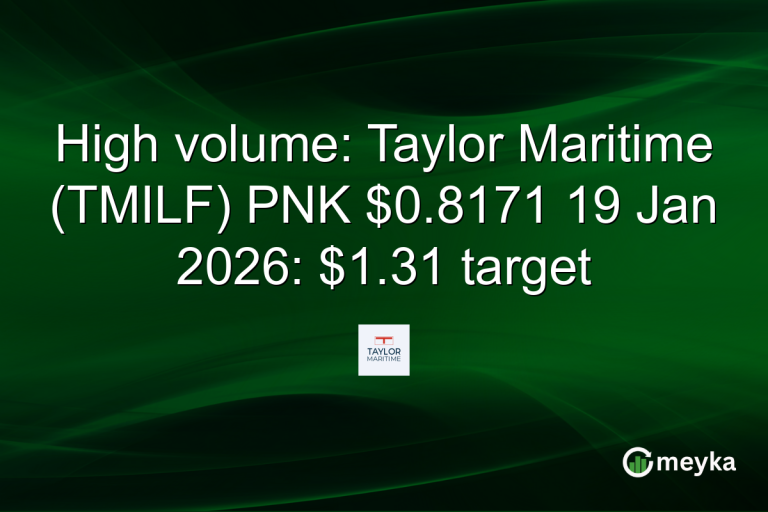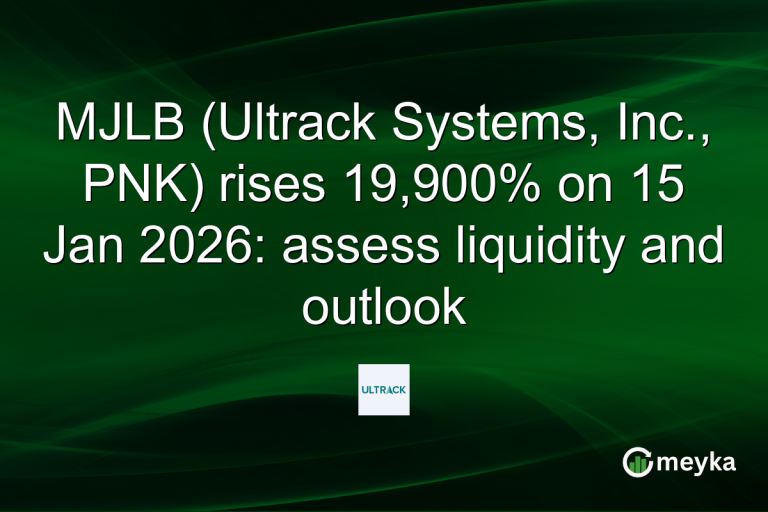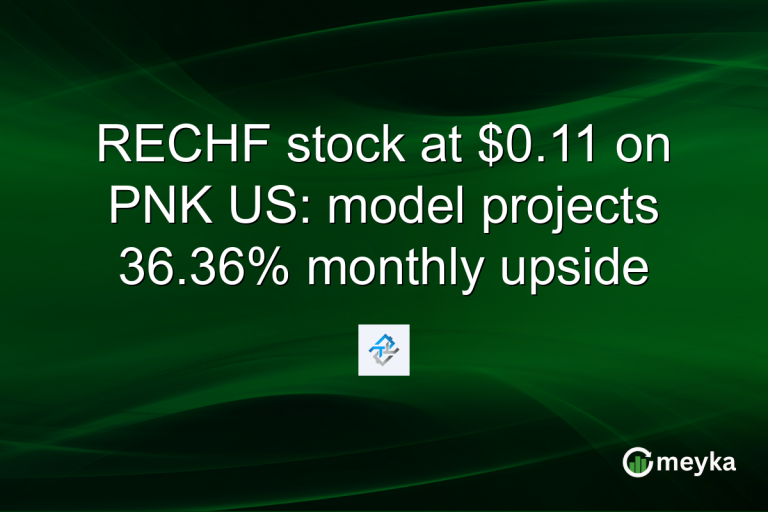Pfizer Nears $7.3 Billion Deal for Metsera Acquisition
Pfizer, one of the world’s largest pharmaceutical companies, is moving closer to a major acquisition valued at around $7.3 billion. The company is reportedly finalizing a deal to buy Metsera, a biotech firm focused on weight-loss drugs and metabolic treatments. This move highlights Pfizer’s ambition to expand into one of the fastest-growing markets in healthcare, obesity, and metabolic therapies.
The acquisition not only positions Pfizer in direct competition with leaders like Novo Nordisk and Eli Lilly but also reflects the broader trend of pharmaceutical companies investing heavily in next-generation therapies. For investors watching the stock market, this deal signals a significant shift in Pfizer’s strategy following recent challenges with falling COVID-19 vaccine revenues.
Why Pfizer is Targeting Metsera
Metsera specializes in developing weight-loss treatments designed to compete with existing blockbuster drugs in the obesity space. Analysts see the obesity drug market as one of the most profitable segments in modern medicine, with projections running into hundreds of billions of dollars in annual revenue by the next decade.
Pfizer has been searching for ways to diversify its portfolio beyond its pandemic-era successes. The company’s COVID-19 vaccine and antiviral pill generated extraordinary revenue, but as global demand has slowed, so has Pfizer’s growth. By purchasing Metsera, Pfizer aims to reposition itself as a leader in metabolic and obesity treatments, a space where demand is only growing.
For shareholders, the acquisition could bring long-term benefits as the company strengthens its product pipeline. According to stock research reports, investors are increasingly focused on how big pharmaceutical firms adapt to changing markets and new health trends.
The Global Race for Weight-Loss Drugs
The rise of weight-loss drugs like Ozempic and Wegovy from Novo Nordisk, as well as Mounjaro from Eli Lilly, has transformed the pharmaceutical industry. These drugs are reshaping public health and the global stock market, as demand for obesity treatments soars.
Metsera’s research pipeline has positioned it as a competitive player in this race. By acquiring the company, Pfizer would gain immediate access to new technologies and patents that could rival those of its competitors.
This acquisition also reflects the shift in investor sentiment. In the past, the biggest gains in pharma were tied to oncology or infectious diseases. Today, AI stocks and obesity-related biotech companies are capturing headlines, attracting capital, and driving valuations higher.
How the Acquisition Strengthens Pfizer’s Pipeline
Pfizer has already tested weight-loss drugs of its own but faced setbacks when side effects and limited effectiveness raised concerns. Instead of building entirely new drugs from scratch, buying Metsera gives Pfizer a ready-made portfolio of promising assets.
The acquisition would:
- Expand Pfizer’s presence in the metabolic disease sector
- Accelerate research into innovative obesity drugs
- Strengthen its competitive edge against Eli Lilly and Novo Nordisk
- Create opportunities for long-term growth beyond short-term vaccine revenues
For Pfizer’s leadership, this move could be the strategic reset needed to reassure investors and boost confidence in the company’s future earnings.
Impact on Investors and the Stock Market
The pharmaceutical sector is one of the most closely watched industries in global markets. Pfizer’s stock has faced downward pressure in recent months, partly due to declining COVID-related sales. A $7.3 billion acquisition signals bold confidence in the future.
For those tracking stock research, such deals often reflect how a company plans to generate long-term value. Strategic acquisitions can increase revenue potential, diversify product portfolios, and improve investor outlook.
If Pfizer successfully closes the Metsera deal, the market could interpret it as a strong comeback strategy. It will also bring attention to the broader trend of consolidation in the pharmaceutical industry, where large players increasingly buy smaller biotech firms to keep pipelines strong.
Challenges Ahead for Pfizer
Despite the optimism, this acquisition will not come without challenges. Pfizer must navigate:
- Regulatory approvals from global health authorities
- Intense competition in the weight-loss drug market
- The pressure of proving Metsera’s drugs can match or outperform established brands
Moreover, while investors may welcome the bold acquisition, they will also want to see clear evidence of long-term profitability. If Pfizer fails to deliver strong clinical trial results or experiences setbacks, the deal could draw criticism.
What This Means for the Future of Pfizer
The acquisition marks a turning point for Pfizer’s growth strategy. It signals a commitment to look beyond temporary revenue sources and focus on sustainable innovation. By targeting Metsera, Pfizer is betting on a therapeutic area that has the potential to change millions of lives while also driving billions in revenue.
For the stock market, this could reignite interest in Pfizer shares. For healthcare, it represents another step toward broadening access to cutting-edge obesity treatments. And for investors in biotech, it shows the continuing importance of acquisitions in shaping the future of medicine.
Conclusion
Pfizer’s nearing $7.3 billion deal for Metsera is more than just a business move; it’s a strategic bet on the future of healthcare. By securing a place in the growing obesity treatment market, Pfizer aims to strengthen its pipeline, restore investor confidence, and remain a dominant force in the pharmaceutical industry.
This acquisition, if completed, could redefine the company’s role in global health and deliver long-term value for both patients and investors. With the obesity epidemic continuing to grow, the timing could not be more critical.
FAQs
Pfizer is acquiring Metsera to expand its presence in the obesity and metabolic disease market, one of the fastest-growing sectors in healthcare.
If successful, the deal could boost investor confidence, improve Pfizer’s long-term outlook, and potentially strengthen its stock performance in the market.
Pfizer’s primary competitors include Novo Nordisk and Eli Lilly, both of which already market leading weight-loss drugs like Wegovy, Ozempic, and Mounjaro.
Disclaimer:
This content is made for learning only. It is not meant to give financial advice. Always check the facts yourself. Financial decisions need detailed research.






